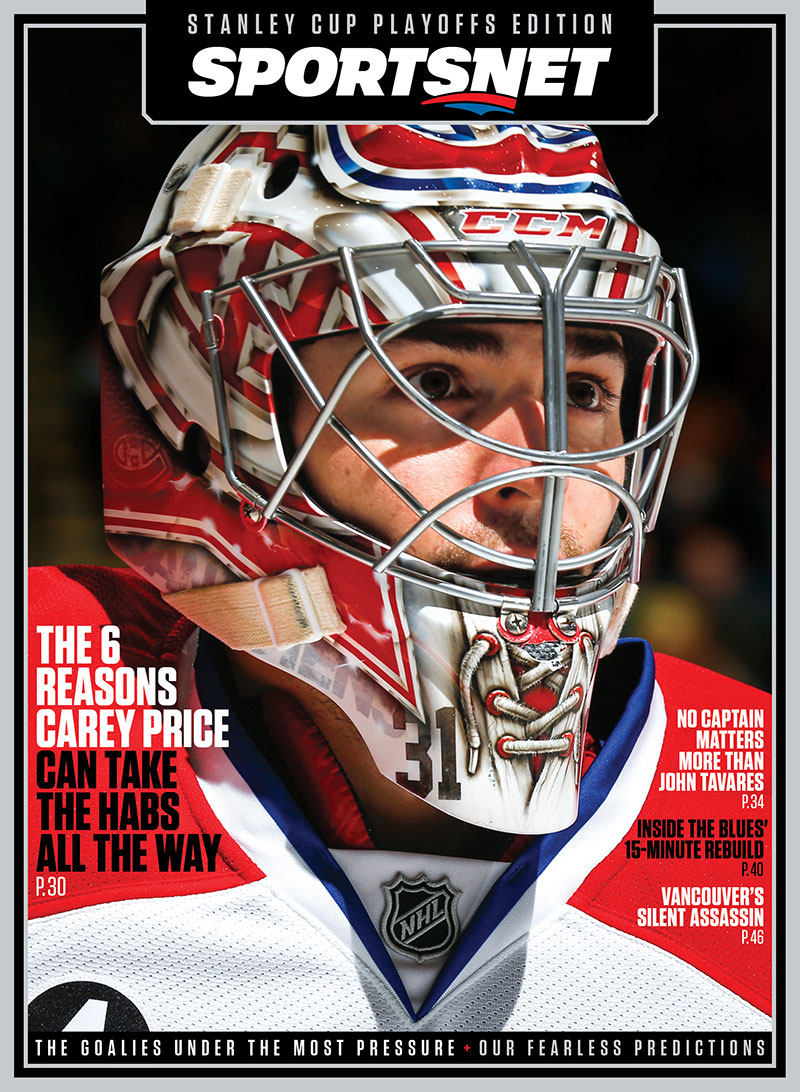TORONTO – Bud Selig was dumb as a fox: often underestimated by politicians, owners, players and media as a doddering old man with bad hair, he was in fact a cold-hearted, backroom politician who could trade favours with the best of them. At times, he was less baseball commissioner than he was big city political boss.
Yet through it all, even a brief conversation revealed him to be a baseball fan. He was particularly fond of some of the game’s veteran writers, even those with whom he had pitched battles. And while all this was going on, there was a tendency in some quarters to view Rob Manfred, his go-to labour guy and crisis-manager, as the equivalent of a technician or functionary. That hardly changed when it became apparent that he was Selig’s choice as successor.
 Sportsnet Magazine Stanley Cup Playoffs
Sportsnet Magazine Stanley Cup Playoffs
Edition: The six reasons why Carey Price can take the Montreal Canadiens all the way. Download it right now on your iOS or Android device, free to Sportsnet ONE subscribers.
These are early days of Manfred’s tenure as Selig’s replacement, but this much is clear: Manfred is a man for his time. True, Manfred is a younger man than Selig was at the end of his tenure, but there is nonetheless a vitality of temperament that has seen Manfred visit 16 different organizations so far, assisting in the ceremonial first pitch before Monday’s home opener for the Toronto Blue Jays. It is odd, but in some ways Manfred has shown himself to be more comfortable at field level than his predecessor.
Manfred has been remarkably forthcoming on some big picture issues – far from dodging the issue, he has all but given the city of Montreal a road map toward regaining a Major League franchise and said he is prepared to meet with Montreal Mayor Denis Coderre – and less so on others, such as the reinstatement of Pete Rose. He will, he said Monday, “follow the lead” of local ownership in markets with ballpark issues; boiler-plate stuff, in other words.
But Manfred is at his best when it comes to dealing with everyday things that matter to players – if you saw the way Alex Rodriguez caught himself stepping out of the box last week against the Blue Jays, just as Edwin Encarnacion did in spring training, it is obvious players are cognizant of Manfred’s pace of play edict. That shouldn’t come as a surprise, since as Selig’s chief labour negotiator for the past couple of collective agreements, Manfred has currency with the Major League Baseball Players Association, both in terms of respect and, yes, fear.
Manfred seems to have a different vision than his predecessor when it comes to using the bully pulpit of the commissioner’s office. It was Manfred, after all, who got down in the muck and mire of the Biogenesis scandal – throwing a couple of elbows here, administering the odd knee in the groin – and that served as a reminder ahead of his ascension to the commissioner’s job that nobody knows the drug-testing landscape better than Manfred, who was Selig’s point man on the issue.
That is not only a message to the players, but also to a group that regardless of sport has escaped its share of the blame for the proliferation of performance enhancing drugs: player agents.
Speaking on Prime Time Sports with Bob McCown, Manfred revisited an interview he did in the spring with New York Daily News baseball columnist Bill Madden in which he suggested he was prepared to at least start making the involvement of agents a topic of back-channel discussion.
“I wouldn’t want to impugn agents as a group,” Manfred said. “The comments I made were related to the Biogenesis (case.) It’s about commonality; when we do these investigations, we’re looking for common themes: Is it the same substance? Same agent? Same college? Same trainer? Those are the sort of things we look at, and whenever you see that kind of commonality, it raises questions.”
What is apparent is that Manfred’s in-depth knowledge of the nuts and bolts of the CBA as well as his understanding of the labour environment – his ability to address issues of importance to players as well as owners – is going to be vital as baseball continues to grow. There is a wider consensus between players and owners on broad issues – drug testing, for example – than ever before. It’s going to be the detailed, less-sexy stuff (service time matters, grievances and the like) that could trip up the next round of labour negotiations when they begin next season.
If there is a concern on the horizon, it might be the change at the top of the MLBPA, where the passing away of Michael Weiner – an able successor to Donald Fehr, and a person who had a well-established relationship with Manfred based on a mutual respect – turned leadership over to Tony Clark, a well-respected former player who was no stranger to the players association but who doesn’t have the legal background of his predecessors. And if you don’t think a stronger union makes it easier to do business in the end? Give Gary Bettman a call: ask him what it was like to sit at the table with the NHLPA before Fehr took over.

